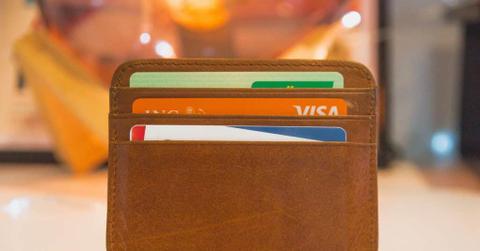Best Steps For Improving Your Credit Score

A good credit score can impact many aspects of adult life. Not only does it increase your odds of being approved for a credit card or loan, but it can also give you a better interest rate for both. Additionally, you need a good score in order to rent an apartment or house from a reputable landlord. If you’d prefer to purchase rather than rent, your credit score can have a big impact on whether you’ll be approved for a mortgage. Other benefits of good credit include receiving better car insurance rates and avoiding the need for security deposits on utility accounts and cellphone plans.
Because so many aspects of your financial life depend on your score, there’s no better time than today to start building a good credit rating. While there’s no quick fix for achieving the score of your dreams, there are some simple steps that can help you steadily move towards your goal.
Check For Credit Report Errors
Even if you are already doing all the right things, your credit rating could suffer if there’s an error in your record. For this reason, it’s very important to take advantage of obtaining a free credit score periodically. Savvy consumers do this regularly to make sure any inaccuracies are identified and quickly resolved.
Pay Off Your Credit Cards
One of the most important steps you can take to improve your credit rating is to focus on paying off any outstanding credit card balance. A person with a high credit rating uses, on average, only 10% of his or her available credit. Your credit rating takes this ratio into account, and, therefore, it pays to do everything you can to minimize the balance you carry forward. Thus, rather than taking that next vacation or purchasing that new smartphone, you should prioritize paying off as much of your credit card debt as you can.
Retain Old Credit Cards
The length of your credit history plays a role in the calculation of your credit score. The longer you’ve had the credit card, the better. As long as there are no annual fees associated with the card, it’s best to keep it in order to continue building on to that history. You shouldn’t maintain a balance on it, though, because an increase in debt will offset any gain made by having a long history.
Make Frequent Payments
Credit utilization is an important factor used to determine your credit rating. This is simply a ratio of total debt to total credit. In an ideal world, you want to have a large line of credit on which you owe very little money.
If you make small payments throughout the month rather than making one big payment at the end of the month, you are slowly chipping away at your debt and, therefore, lowering the level of your credit utilization. If you wait until the end of the month to pay, your credit utilization ratio is growing as the month progresses.
Ask For Higher Limits
Even if you don’t use your credit card or need a high limit for purchases, a higher credit limit can be very beneficial. Just as decreasing your debt improves your credit utilization number, increasing your amount of available credit does as well. Therefore, it’s worth asking for an increase in your spending limit because as your credit limit goes up, your credit utilization level goes down.
Pay Bills On Time
Your credit score is based on a number of factors, and your payment history ranks as the most important of all. As a result, it is imperative that you always pay your bills on time. Create alerts for all your bills, or better yet, set up automatic payments through your bank.
Your credit score is viewed as one of the most accurate measures of your financial health, and as such, a healthy score can open doors, save you money, and improve your financial life. To make sure your rating is as high as it can be, make sure you take the necessary steps to monitor your score, decrease your level of debt, and increase your line of credit. These simple steps will have you on the path to a better credit score in no time!
[Editor’s note: This post was produced by one of our trusted partners.]





